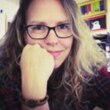How we became wicked
(Book)
Y/SF YATES
1 available
Copies
| Location | Call Number | Status |
|---|---|---|
| Central - Teen Science Fiction | Y/SF YATES | Available |
Description
More Details
Notes
Excerpt
Similar Titles From NoveList
Similar Authors From NoveList
Published Reviews
Booklist Review
Astrid is one of only two teenagers in the settlement of Goldsport, a fact that's a touchy subject with a tragic explanation. Natalie lives on an island with just her grandfather, pregnant mother, and, until recently, her father. In this future, the world has been decimated by a disease called the wickedness, spread by glowing purple insects called Singers that leave the infected the Wicked at once supremely violent and eerily childlike. But Astrid and Natalie are part of an incalculably small portion of survivors: they are Vexed, immune to the disease and of great interest to the rest of the world. As these brave heroines adventure for their lives, they learn just what ""wicked"" really is. Yates (The Winter Place, 2015) manages to make Natalie's infected grandfather far more sympathetic than many uninfected survivors, whose many shades of depravity make them no small threat. The vividly imagined and haunting landscape is not unlike the post-apocalypse world of The Walking Dead, in which communities struggle to govern themselves as they fend off both the infected but also fellow survivors in a lawless anarchy. A creative and philosophical take on a zombie-esque apocalypse with a perfectly executed final act twist. Promptly hand this one to lovers of smart, tense science fiction.--Eleanor Roth Copyright 2019 Booklist
School Library Journal Review
Gr 7 Up--Earth has met its apocalypse, and it involves insects. Mosquito-like hybrids carry the disease "wicked," and it spreads quickly. Victims gain a taste for violence, usually murdering their neighbors and family members with a childlike grin. Astrid has been raised in a glass-domed area, sheltered from the wicked, and protected by gallons of insecticide. When newcomers arrive in their encased town, they are asked The Question: What do you want? When asked repeatedly, those infected with wicked will invariably slip up and reveal their true intentions, like maybe seeing what you look like without skin. Astrid is uniquely immune to the disease. It was believed that if young children were exposed to the virus they would be "vexed," or immune. Unfortunately, this worked for only Astrid, and an entire generation of children, save two, died in the attempt, not to be replaced. Although her age-mate Hank did not die, he is not immune, and, like the other members of their community, must wear a bee suit whenever venturing out. Meanwhile, as Astrid and Hank delve into the history of the town, the lighthouse across the way springs to life, raising questions about possible other residents. This is a real page-turner, although jumps in perspective and time may prove problematic for reluctant readers. VERDICT Yates has spun a first-class sci-fi/horror story. The interactions with the wicked are truly macabre, but in the best way.--Leah Krippner, Harlem High School, Machesney Park, IL
Kirkus Book Review
A town's tarnished history is revealed in this dystopian tale.The mosquitolike singer's bite carries wickedness, turning any human into a "grinning, homicidal maniac." Immune and purple-eyed thanks to the usually fatalfor every child in town who received it but hervex inoculation, 16-year-old Astrid now chafes at her more-Stepford-than-survivalist life in the glass-encased, retirement village-like Goldsport. Astrid also rejects a seemingly predestined relationship with fellow 16-year-old Hank, the only other young person in town. Hank is unvaccinated and still vulnerable, a sidekick and dude in distress. He faithfully accompanies the acerbic Astrid after an encounter with an outsider inspires her to root out the (barely hidden) conspiracy, challenge a (dutifully dastardly) powermonger, and imperil (unnecessarily) her parents, Hank, and the town. Out on Puffin Island, also-vexed Natalie's hardscrabble life gets harder when her father leaves, her mother falls ill, and her "wicked" grandfather gets loose. Through intersecting adventures, both girls learn that the "true" (uninfected) may be more evil than the "wicked" (i.e., The Walking Dead). Rather than being rotting zombies, the sentient and speaking wicked look normal but commit violent acts. Yet this somewhat novel premise can't overcome the predictable plot arc, flat characters, and telegraphed twists or the unsettling scenes of destruction and torture.An unnecessary and uneven latecomer to the dystopian genre, an incongruous mix of Dahl-like whimsy and Dexter-like graphic violence. (Dystopian. 12-18) Copyright Kirkus Reviews, used with permission.
Booklist Reviews
*Starred Review* Astrid is one of only two teenagers in the settlement of Goldsport, a fact that's a touchy subject with a tragic explanation. Natalie lives on an island with just her grandfather, pregnant mother, and, until recently, her father. In this future, the world has been decimated by a disease called the wickedness, spread by glowing purple insects called Singers that leave the infected—the Wicked—at once supremely violent and eerily childlike. But Astrid and Natalie are part of an incalculably small portion of survivors: they are Vexed, immune to the disease and of great interest to the rest of the world. As these brave heroines adventure for their lives, they learn just what wicked really is. Yates (The Winter Place, 2015) manages to make Natalie's infected grandfather far more sympathetic than many uninfected survivors, whose many shades of depravity make them no small threat. The vividly imagined and haunting landscape is not unlike the post-apocalypse world of The Walking Dead, in which communities struggle to govern themselves as they fend off both the infected but also fellow survivors in a lawless anarchy. A creative and philosophical take on a zombie-esque apocalypse with a perfectly executed final act twist. Promptly hand this one to lovers of smart, tense science fiction. Grades 9-12. Copyright 2019 Booklist Reviews.
School Library Journal Reviews
Gr 7 Up—Earth has met its apocalypse, and it involves insects. Mosquito-like hybrids carry the disease "wicked," and it spreads quickly. Victims gain a taste for violence, usually murdering their neighbors and family members with a childlike grin. Astrid has been raised in a glass-domed area, sheltered from the wicked, and protected by gallons of insecticide. When newcomers arrive in their encased town, they are asked The Question: What do you want? When asked repeatedly, those infected with wicked will invariably slip up and reveal their true intentions, like maybe seeing what you look like without skin. Astrid is uniquely immune to the disease. It was believed that if young children were exposed to the virus they would be "vexed," or immune. Unfortunately, this worked for only Astrid, and an entire generation of children, save two, died in the attempt, not to be replaced. Although her age-mate Hank did not die, he is not immune, and, like the other members of their community, must wear a bee suit whenever venturing out. Meanwhile, as Astrid and Hank delve into the history of the town, the lighthouse across the way springs to life, raising questions about possible other residents. This is a real page-turner, although jumps in perspective and time may prove problematic for reluctant readers. VERDICT Yates has spun a first-class sci-fi/horror story. The interactions with the wicked are truly macabre, but in the best way.—Leah Krippner, Harlem High School, Machesney Park, IL
Copyright 2019 School Library Journal.Reviews from GoodReads
Citations
Yates, A. (2019). How we became wicked (First edition.). Atheneum.
Chicago / Turabian - Author Date Citation, 17th Edition (style guide)Yates, Alex, 1982-. 2019. How We Became Wicked. New York: Atheneum.
Chicago / Turabian - Humanities (Notes and Bibliography) Citation, 17th Edition (style guide)Yates, Alex, 1982-. How We Became Wicked New York: Atheneum, 2019.
Harvard Citation (style guide)Yates, A. (2019). How we became wicked. First edn. New York: Atheneum.
MLA Citation, 9th Edition (style guide)Yates, Alex. How We Became Wicked First edition., Atheneum, 2019.





























